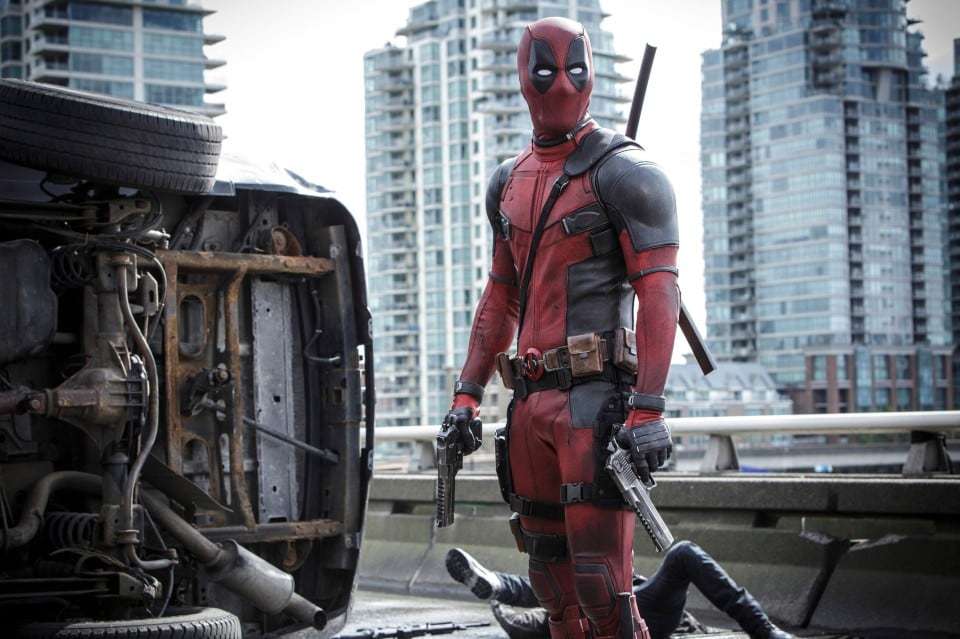'Deadpool,' alcohol and the First Amendment

Utah law bans establishments licensed to sell alcohol from showing films that depict any "act or simulated [sexual] act" (or that depict any "person dispaly[ing] the genitals or anus"). Where does that leave movie theaters that display mainstream R-rated films - say, "Deadpool" - and that sell food and alcoholic drinks for customers to eat during the film?
Out of luck, says the Utah Department of Alcoholic Beverage Control. Protected by the First Amendment, responds a Utah federal district court in Thursday's Cinema Pub, LLC v. Petilos. The Supreme Court's "erogenous zoning" cases, which have allowed restrictions on the location of porn theaters - and have been read as allowing bans on alcohol at strip clubs and other such venues - don't apply:
Brewvies is not an adult oriented establishment…. Brewvies does not focus on sex. It shows the same movies that other, non-sexually oriented movie theaters show but with alcohol….
The State does not argue that Brewvies is an adult sexually oriented establishment. Instead, it argues that if at any given point the content of an offending film is analogous to the content of the adult films at issue in Renton [the leading case upholding the regulation of porn theaters], the secondary effects doctrine [which allows such regulations] applies. But the secondary effects doctrine was not intended to protect neighborhoods from the effects of momentary, episodic sexual displays that the enforcing agency does not consider obscene or pornographic. It was intended to protect neighborhoods from the harmful effects of speech on the fringes of First Amendment protection that defines a specific class of businesses, i.e., sexually oriented businesses.
The restriction is thus a content-based restriction and must be struck down unless it's "narrowly tailored" to a "compelling government interest." And, the court reasons even if there's a compelling government in preventing the crime and other misbehavior that supposedly stems from mixing alcohol and sexually oriented conduct (e.g., in strip clubs), there's no reason to think that the consumption of alcohol during mainstream R-rated movies such as "Deadpool" would have such effects:
[The law] is overinclusive because it captures mainstream content. … In Barnes v. Glen Theatre, Inc., Justice Souter discussed [in his concurrence in the judgment] how Indiana's public indecency law, which prohibited completely nude dancing, would be overinclusive:
It is difficult to see, for example, how the enforcement of Indiana's statute against nudity in a production of "Hair" or "Equus" somewhere other than an "adult" theater would further the State's interest in avoiding harmful secondary effects [such as crime or diminished property values], in the absence of evidence that expressive nudity outside the context of Renton-type adult entertainment was correlated with such secondary effects.
… In an effort to mitigate the secondary effects that allegedly result from the combination of alcohol and the occasional, momentary glimpse of nudity, [the law] reaches "many films that are far removed from what is colloquially termed 'hard core,' or even 'soft core,' pornography." … [Therefore, the] restrictions impose unacceptable limitations on speech that the State admits should be accorded full First Amendment protection.
Sounds quite right to me; the First Amendment generally protects speech against content-based burdens and not just outright prohibitions - and a provision that a business can't sell alcohol if it displays speech of a particular content is such a content-based burden. Rightly or wrongly, the court has adopted a different view as to businesses that specialize in outright pornography; but the court here concluded that this cannot apply to mainstream theaters that show some movies with some sex scenes.
In case you've forgotten, here are the details on the covered scenes from "Deadpool":
Officer Cannon submitted his written report, which described that in the movie a man, Wade, and woman, Vanessa, got into a relationship and had "implied sexual contact during numerous holidays." He said Vanessa sodomized Wade in their bed. He also described Wade getting into a fight, during which his clothes came off and he "shows full frontal nudity during the fight scene." Later there was a scene that "showed him simulating him [sic] masturbating in his bed with a stuff [sic] animal (Unicorn)." Later, there was full frontal nudity of women dancing at a strip club, where Wade had gone to speak with Vanessa….
Officer Bullock also says that during one sex scene, the male character fondled the woman's bare breasts and, finally, during the credits, Officer Bullock describes "a drawing of the main character (male) … as he rides on the back of a unicorn, he rubs its horn briefly until the horn shoots out rainbows (simulating orgasm)."
See also this post about a similar Idaho / "Fifty Shades of Grey" case; the Idaho law has since been narrowed to exclude nonobscene movies.
